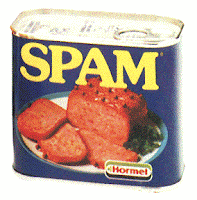 One of the things I preach in Music 3.0 is the importance of a website as the central point in your online strategy. It's the one thing that you have totally under your control, where you don't have to worry about a change in the look or terms of service like with many social networks.
One of the things I preach in Music 3.0 is the importance of a website as the central point in your online strategy. It's the one thing that you have totally under your control, where you don't have to worry about a change in the look or terms of service like with many social networks.That said, there are a number of quick and easy optimization tricks for your landing page (home page) that are important for user experience and search rankings. They are:
1. Make it load fast. 25% of visitors abandon a page that takes 4 seconds to load.
2. Have some copy. Search engines love 200 to 600 words of copy sprinkled with keywords.
4. Make the text large enough to read. Text that's too small is the number one complaint of people visiting websites.
5. Have a mailing list subscription section. You're missing a big opportunity if it's not available.
6. Have a contact section. Make sure people can easily get in touch.
7. The user experience takes precedent. Make it fast and easy for the visitor to easily get the information he's looking for.
8. Test it and test again. You will be penalized by the search engines for things like broken links, and it downgrades the user experience.
These aren't the only things that you can do, but they're a good start at improving your site and ranking higher in the search engines.
----------------------------------
Help support this blog. Any purchases made through our Amazon links help support this website with no cost to you.
Interested in the Music 3.0 archives? Buy The Music 3.0 Guide To Social Media. The best of over 800 posts.
You should follow me on Twitter for daily news and updates on production and the music business.
You should follow me on Twitter for daily news and updates on production and the music business.
Check out my Big Picture blog for discussion on common music, engineering and production tips and tricks.



